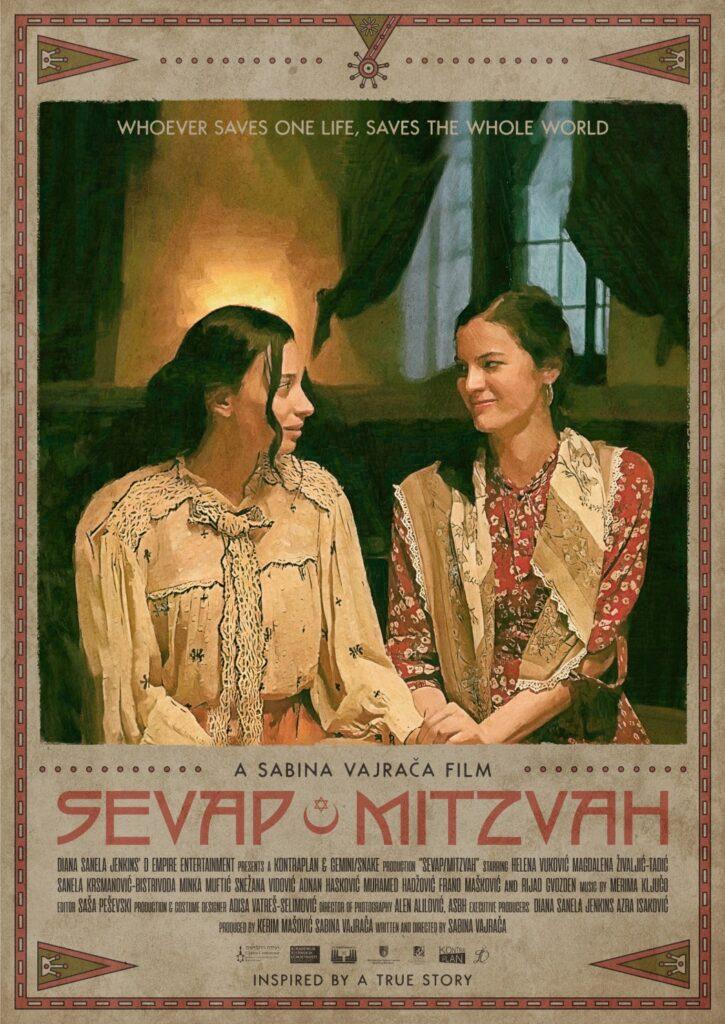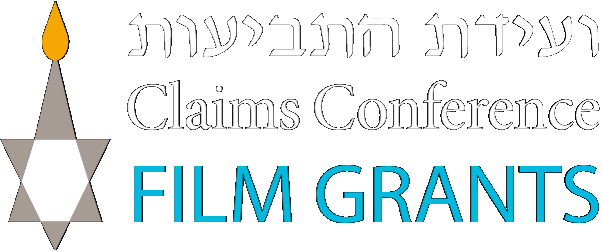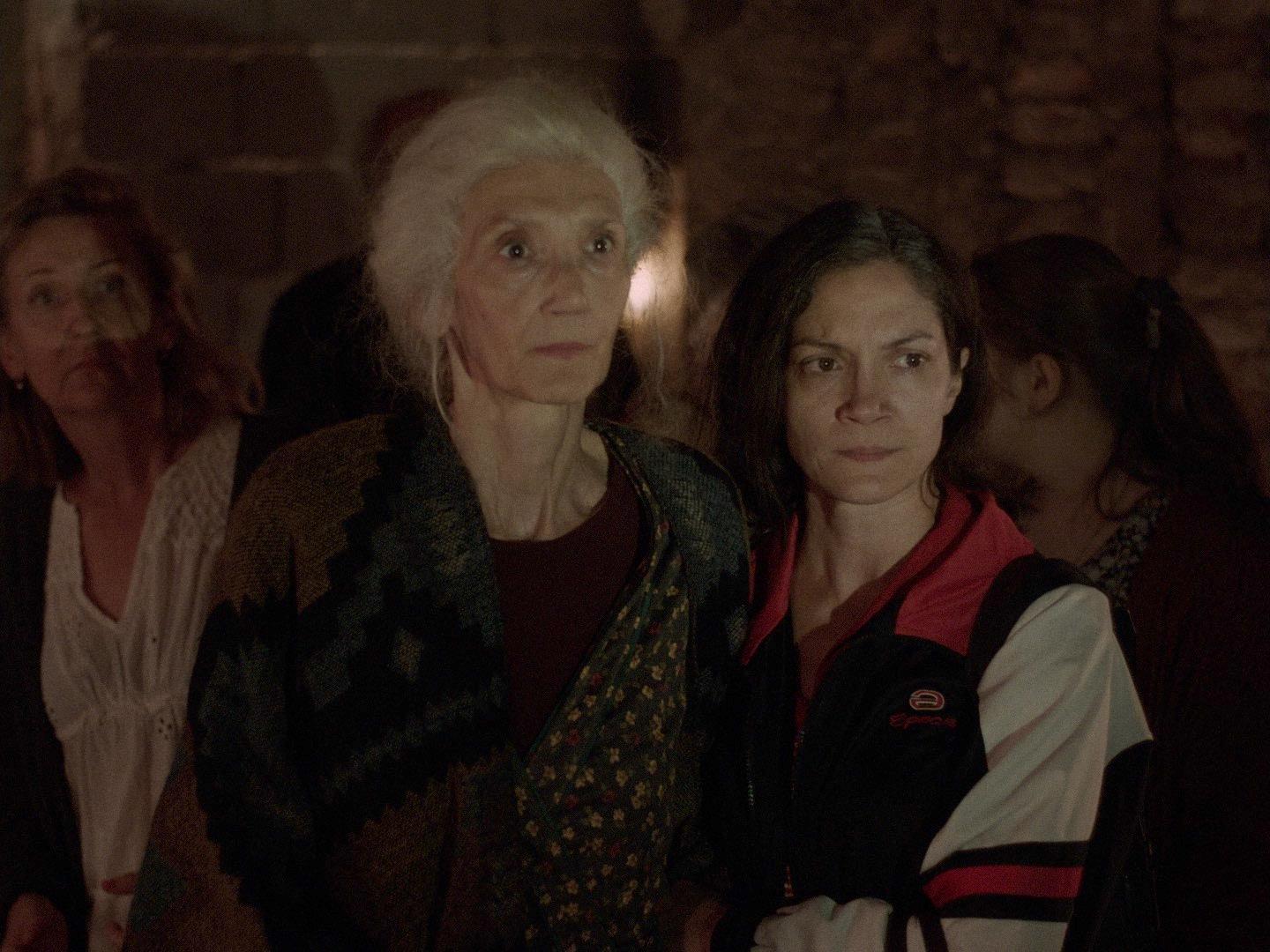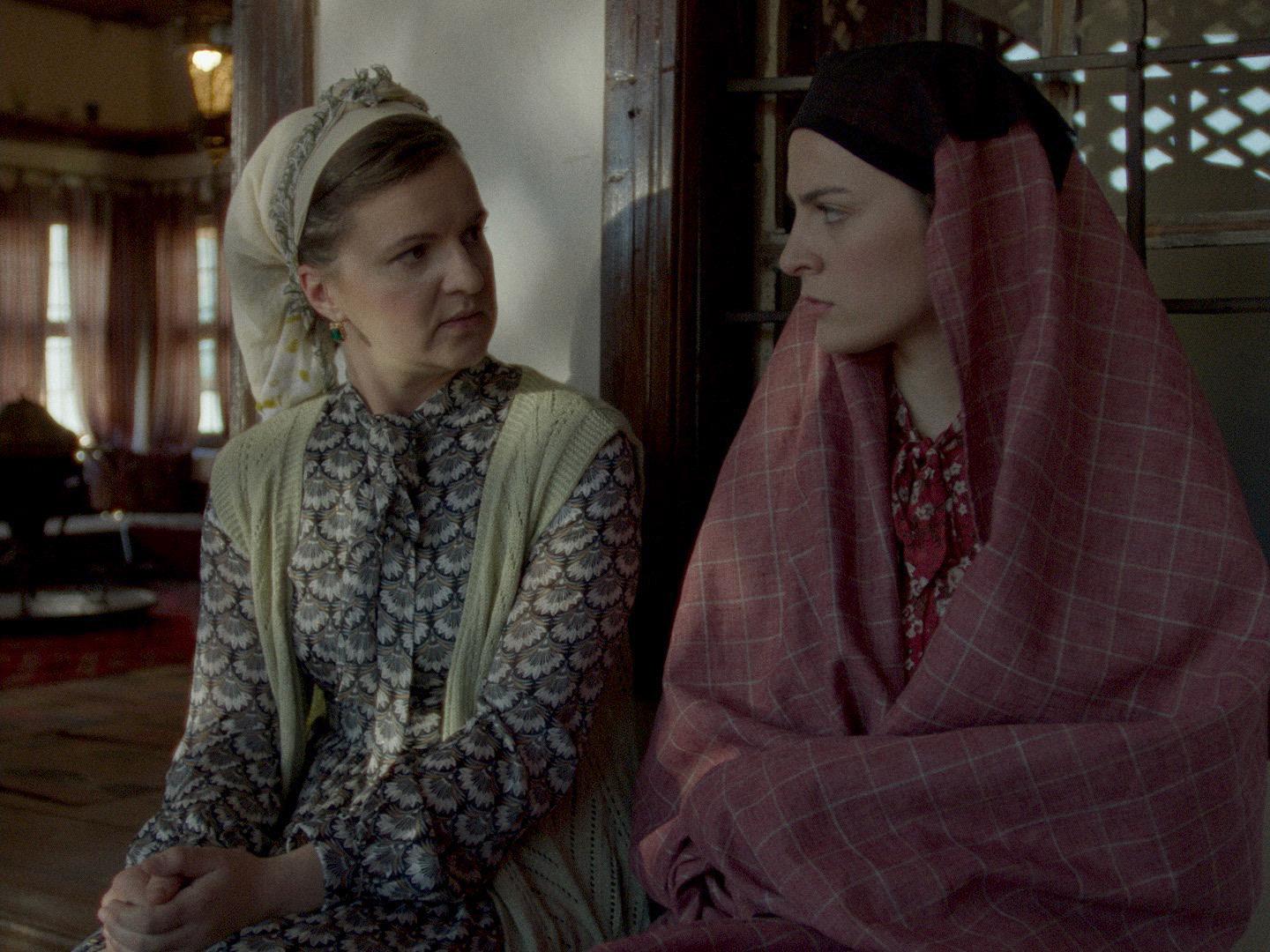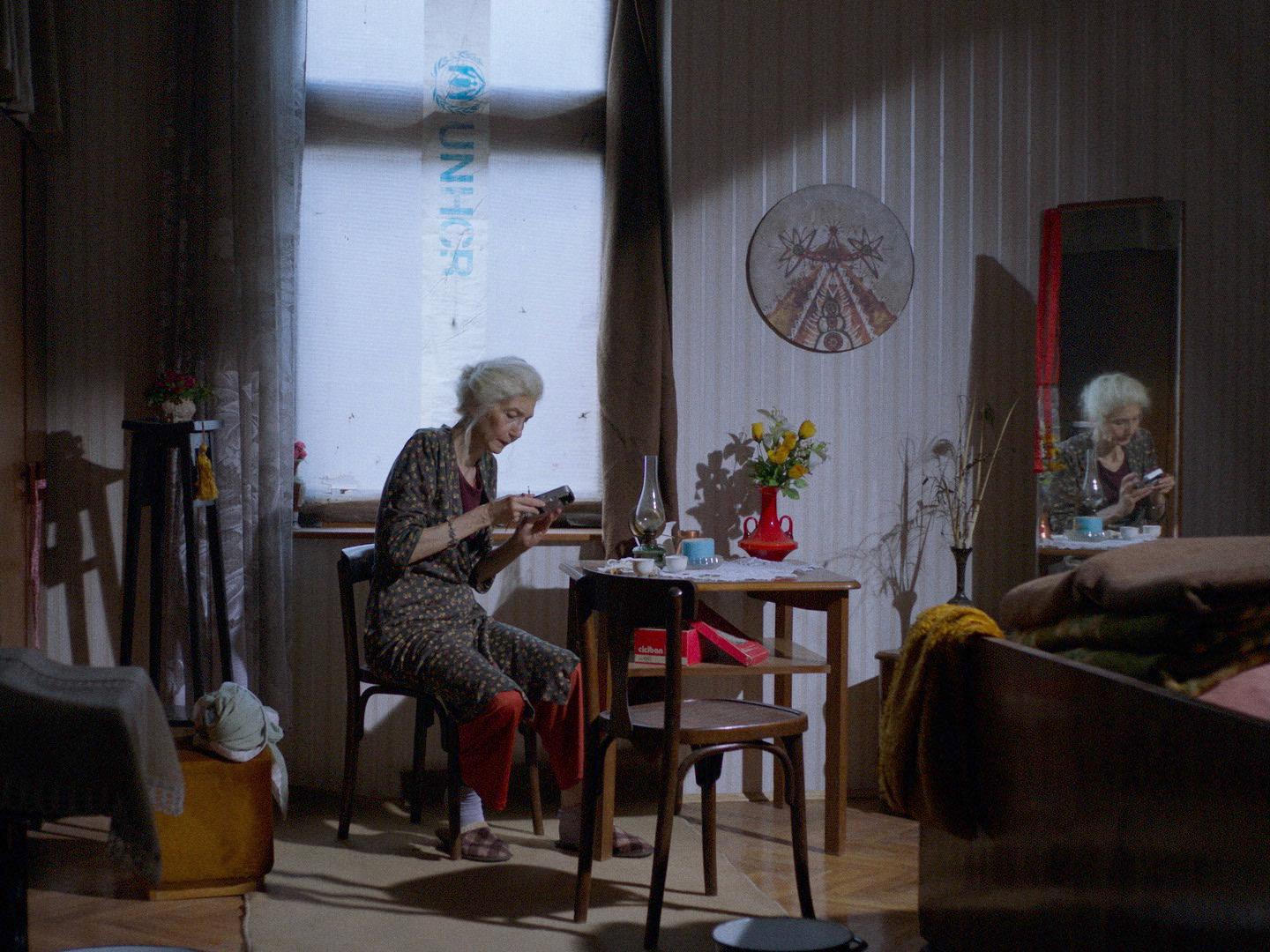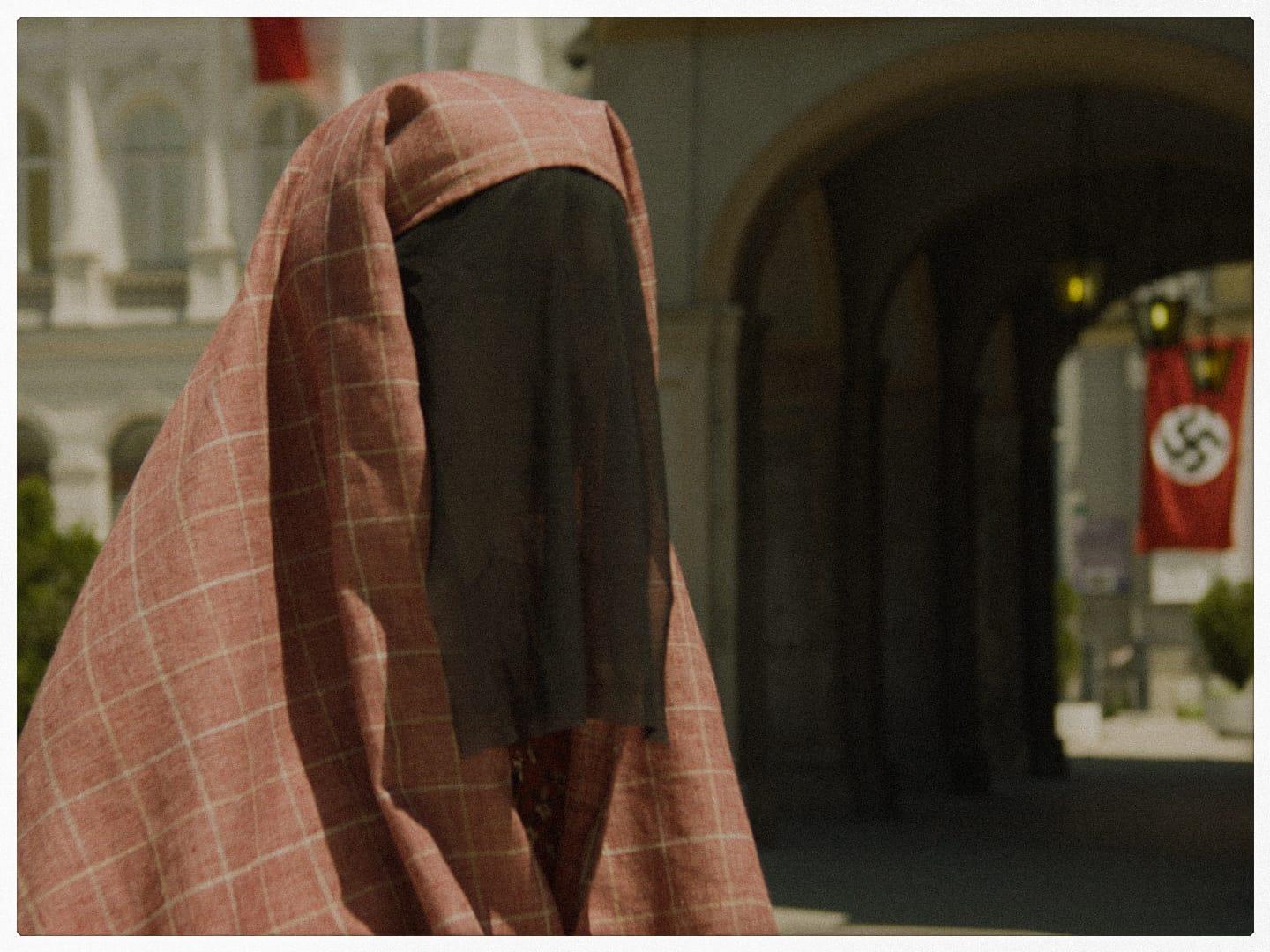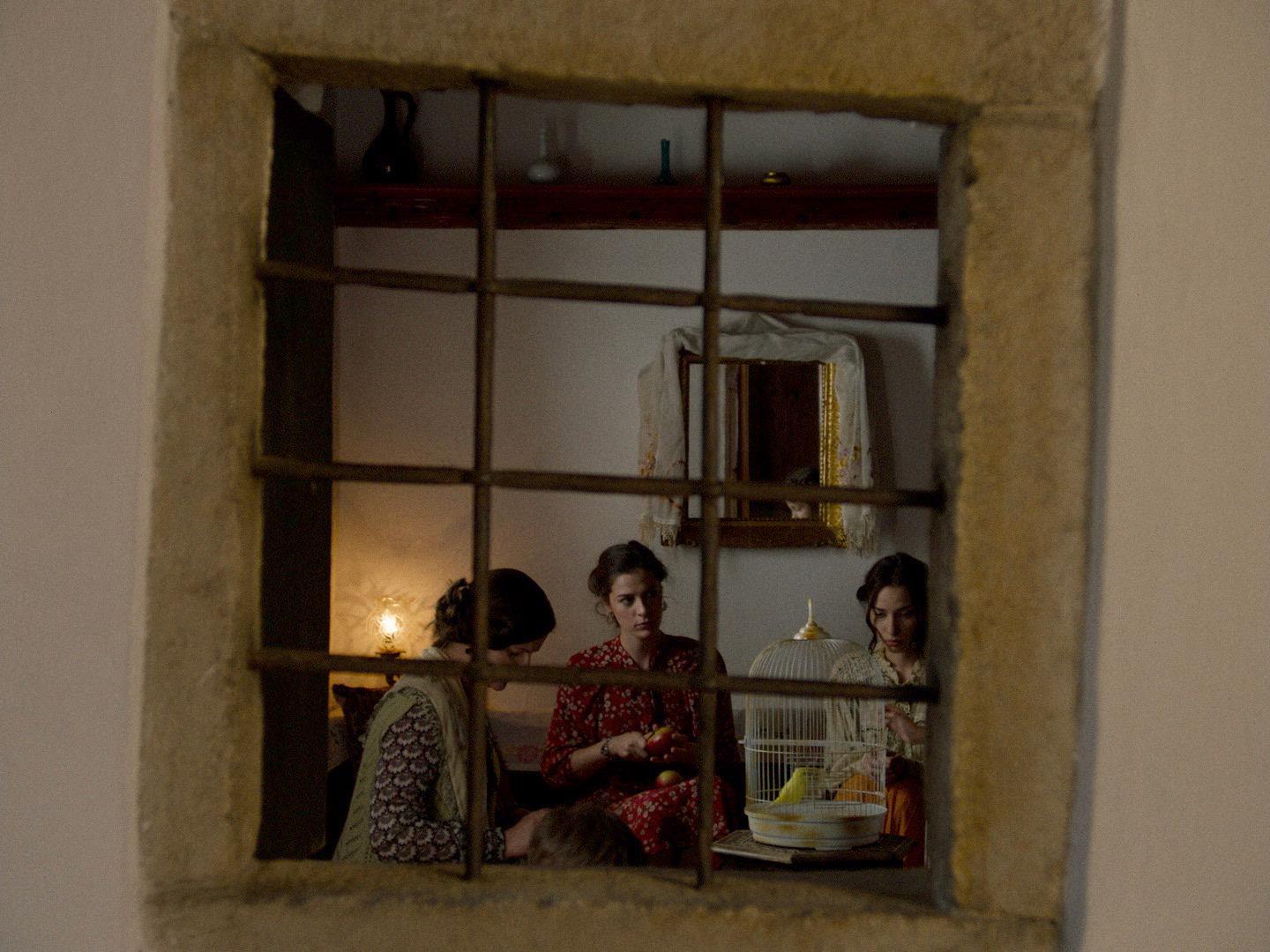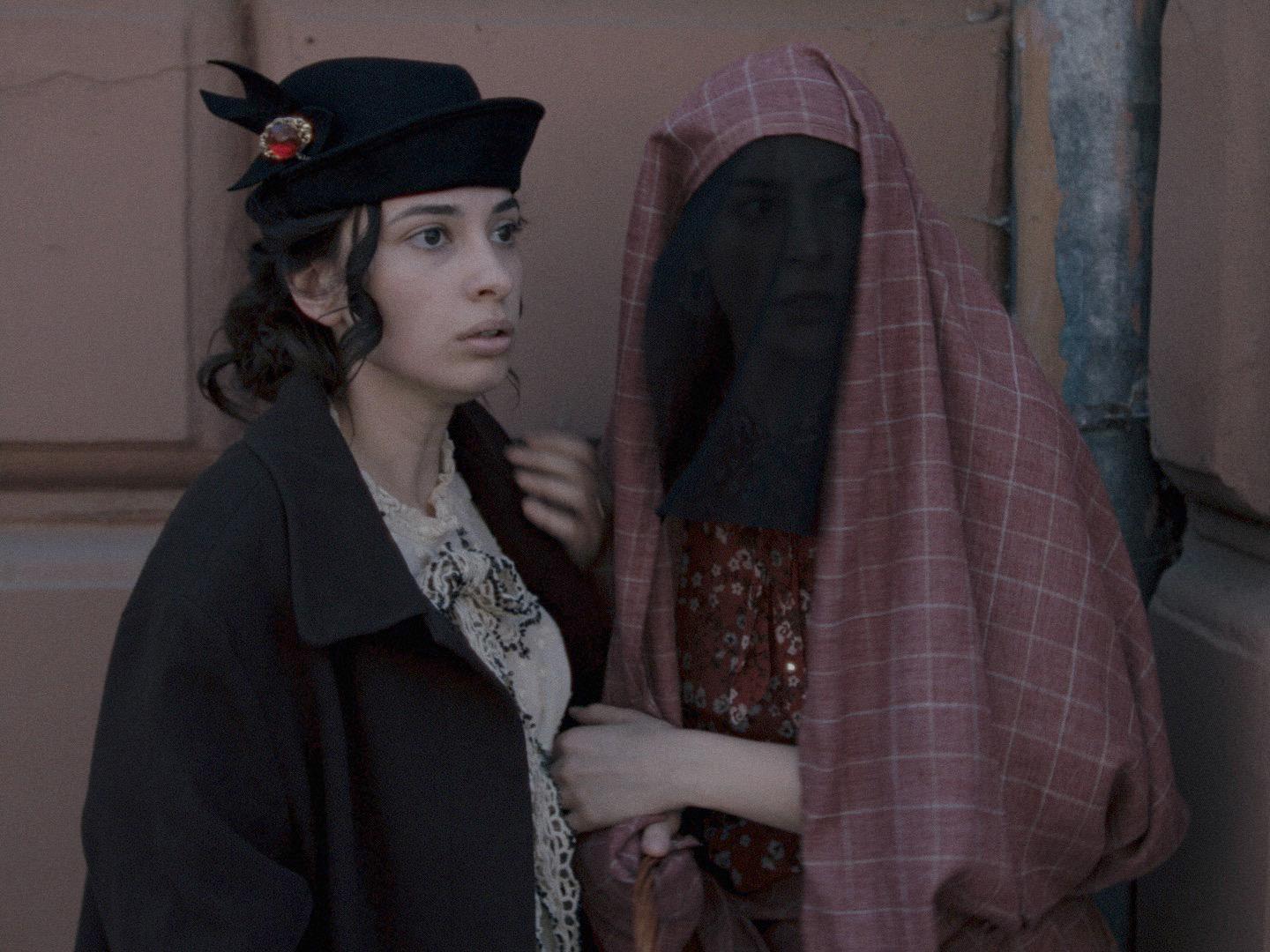During WWII in Nazi-occupied Bosnia, a Muslim woman risks everything to save her Jewish friends. 50 years later the tables have turned. Inspired by a true story.
Synopsis
Zejneba Hardaga was never one to cower in the face of injustice, even within her strict Muslim community. So, when she realizes Sarajevo’s Jews are being rounded up by Nazis, putting her friend Rifka and Rifka’s family in danger, she risks everything to save them. Fifty years later, during the Bosnian War, it’s the Muslims who are being hunted down, and Rifka has to find a way to rescue Zejneba and her family in turn. Inspired by a true story.
About the Director
Born in Bosnia and Herzegovina, Sabina Vajrača immigrated to Florida, U.S. as a war refugee in the 1990s, and started her directing career in NYC theatre.
Her first film, the critically-acclaimed feature documentary BACK TO BOSNIA, premiered at AFI Fest, screened at 30+ festivals worldwide, and was featured in BBC’s “Top 100 of the Greatest Films Directed by Women.” It’s now streaming on multiple platforms, including Amazon.
Since then she wrote, directed, and produced commercials, music videos, and over a dozen films including the multiple-award-winning
VARIABLES, the Warner Bros./USC feature period drama VOODOO MACBETH, and the short drama SEVAP/MITZVAH, which was the
2024 Oscars® contender and won the 2023 Humanitas Prize.
Her other accolades include the DGA SFA Grand Prize, Claims Conference grant, Alfred P. Sloan grant, numerous film festival awards, and nominations for the Student Oscars and Student BAFTA.
Outside of her own work, she assisted writer/director Max Mayer on his Sundance winning drama ADAM, starring Hugh Dancy and Rose Byrne, and apprenticed directors on MADAM SECRETARY (CBS) and 9-1-1 (FOX).
Sabina’s a member of Film Fatales and BAFTA, and an alumna of Ryan Murphy’s Half Directing Mentorship, Hayama Residency, Stowe Story Labs, and Almanack Screenwriters.
She received an M.F.A. in Film and TV Production from USC School of Cinematic Arts and is repped by Vision Entertainment and GGSSC.
Artistic Statement
Ever since immigrating to the U.S. in 1994, I’ve lived with the refrain that Muslims and Jews hate one another, have always hated one another, and there is nothing anyone can do about it. Tired of that same old rhetoric, I decided to tell a story that was more familiar to me. The story of Bosnia, where I was born and grew up, and where
neighbors helped neighbors, regardless of their background. And in which sevap is, in a way, most important.
I chose to focus on the story of Zejneba Hardaga because she reminded me of my late grandma Beska in many ways. As a child during WWII, my grandma saw her Jewish best friend and her family being taken away by the Ustaša (local Croatian Nazis), never
to be seen again. When she told me that story, many years later, I could still sense her anger that as a little girl she had neither the opportunity nor the knowledge of how to help them, and that the adults, who did have those abilities, did not do so. I believe that had she been older, she would have done exactly the same as Zejneba, and I feel that through this film I somehow gave her a chance to finally live out what her heart wanted to all her life.
This story is also a perfect example of goodness begetting goodness, and the idea that when we do something for others, we also gain from it. I deeply believe in this Truth and think it’s important for all of us to remember it, especially in these times when divisions on ethnic, religious, political and many other bases are suddenly more important than that goodness, which we all carry within us, and which unites us
beyond all those arbitrary labels.
Our hearts know how to recognize good from evil, no matter what others tell us. And it’s important that when we see evil in any form, we do everything we can to remove it like the weed that it is. From within us, and from our community. No matter how much we may be afraid, or ashamed, to do so.
I sincerely hope that this story of two ordinary women doing just that will inspire us all to do the same.
– Sabina Vajrača
Festivals, Screenings, & Awards
-Claims Conference Emerging Filmmakers Contest (2021), Winner
-Cleveland International Film Festival – Best Short Film/Humanitas Prize Winner (2023)
-Hollyshorts Film Festival – Grand Prix: Best Short Film Nominee, Jury Award: Best Short Film, Best Director Nominee (2023)
-Toronto Jewish Film Festival – Best Short Film Nominee (2024)
-Centre Film Festival – Gratitude Award Winner (2023)
-Atlanta Jewish Film Festival (2023)
Year
2023
Film Type
Narrative
Film Length
20 minutes
Language
English, Bosnian
Production Country
USA
Production Companies
Gemini/Snake Productions, Kontraplan Produkcija
Distributor
Short Frame
Director/Writer/Producer
Sabina Vajrača
Editing
Saša Peševski
Cinematography
Alen Alilović
Music
Merima Ključo
Starring
Helena Vuković, Sanela Krsmanović-Bistrivoda, Magdalena Živaljić Tadić, Adnan Hasković, Muhamed Hadžović, Frano Mašković, Rijad Gvozden, Emina Minka Muftić, Snežana Vidović
